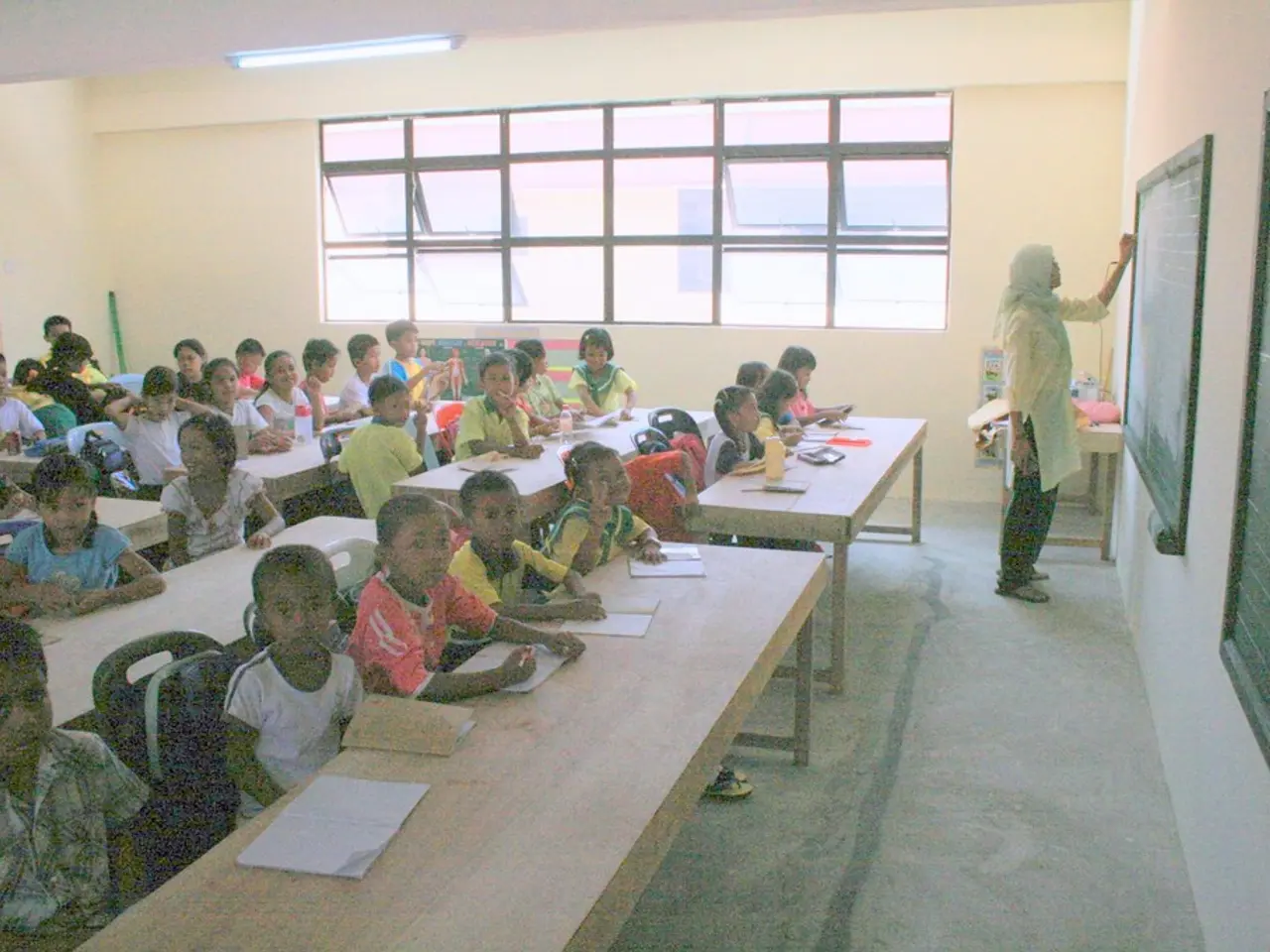Strategies for Successfully Crafting Educational Programs for Teachers
In the realm of education, the focus is shifting towards creating more personalized, flexible, and inclusive learning experiences. This transformation is driven by the integration of advanced technology and artificial intelligence (AI) into curriculum development.
Educators at the Heart of Curriculum Development
Educators serve as the primary link between educational standards and classroom practices, playing a pivotal role in the process of curriculum development. They contribute valuable insights gained from their direct interactions with students, ensuring that the curriculum is tailored to meet the needs of learners.
Future Trends in Curriculum Development
Future trends in curriculum development include personalized learning, interdisciplinary teaching, AI integration, and a focus on developing soft skills. Current trends emphasize personalization, flexibility, and immersive experiences enabled by AI, virtual reality (VR), and hybrid learning models.
Personalized Learning with AI
AI systems tailor content and learning pace to individual students, enhancing engagement and retention. By analyzing learner interactions, AI can offer content addressing specific needs, and AI-driven dashboards help educators intervene early based on learning analytics.
Hybrid and Flexible Learning Models
Blended learning, combining online and in-person instruction, is becoming standard, offering flexibility, accessibility, and personalized pacing.
Immersive and Gamified Experiences
VR labs for physics and chemistry provide immersive hands-on learning, while gamification applies game elements to motivate and increase classroom engagement. Tools like Kahoot! and Blooket are gaining popularity in this regard.
Technology-supported Self-Regulated Learning (SRL)
Frameworks like TPACK integrate pedagogy with technology to improve self-regulation, metacognition, and complex problem-solving skills, particularly in STEM and programming education.
Automation through AI
Generative AI helps create quality educational content quickly and cost-effectively. AI assistants reduce teacher workload by automating grading, scheduling, and providing instant feedback, allowing teachers to focus on personalized interactions.
Micro-learning and Credentialing
Bite-sized learning modules and stackable micro-credentials offer flexible ways for learners to upskill continuously, aligning education with real-world skill demands.
Inclusivity and Accessibility
Technologies ensure diverse learners have equitable access to learning tools, fostering inclusiveness in education environments.
Professional Development for Educators
Professional development for educators encompasses ongoing learning opportunities designed to enhance teaching skills and improve student outcomes. Mentors and coaching programs can play a vital role in this process by providing personalized guidance and feedback.
A Well-Aligned Curriculum
A well-aligned curriculum serves as a foundational element for successful teaching and learning. Aligning curriculum with standards ensures that educational programs meet established benchmarks for teaching and learning. Incorporating strategies for inclusion, such as Universal Design for Learning (UDL) and collaborative learning environments, fosters an inclusive learning environment.
Differentiating Curriculum for Diverse Learners
Differentiating curriculum for diverse learners involves tailoring the educational experience to meet the varied needs of students. Collaboration among educators, curriculum specialists, and stakeholders is essential in this process. Central to this framework is the identification of learning outcomes that educators aim to achieve.
Challenges in Curriculum Development
Challenges in curriculum development include aligning content with standards, addressing diverse needs, resource allocation, and keeping up with technological changes. Educators play a vital role in this alignment by collaborating with curriculum developers, administrators, and stakeholders.
In conclusion, curriculum development is moving towards integrating advanced AI and immersive technologies to create more personalized, flexible, engaging, and inclusive learning experiences, while supporting teachers with automation and data-driven insights. Educators and institutions that adopt hybrid pedagogies, AI tutoring, VR tools, and technology-pedagogy frameworks like TPACK will be best positioned for the future.
- E-learning platforms and professional development programs are increasingly utilizing AI to offer personalized instructional strategies, helping learners grow and educators adapt to shifting educational standards.
- By focusing on education-and-self-development through technology-supported self-regulated learning, learners can improve their personal-growth and complex problem-solving skills, particularly in STEM and programming education.
- To cater to the diverse needs of learners, curriculum developers must employ differentiating strategies, using instructional tools to create immersive and gamified learning experiences that promote a culture of inclusivity and accessibility.




